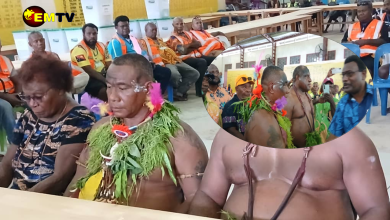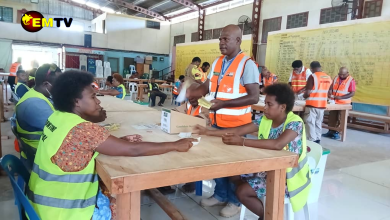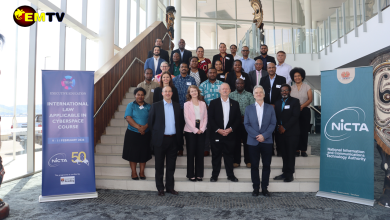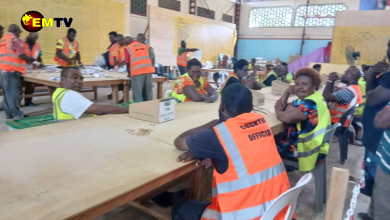QUESTIONS RAISED ON COMMERCIAL BANK’S SERVICES
By Rocky Issou
On any day of the week Papua New Guineans lined up early at each of the commercial banks before it opens in order to beat the long queues and ensure personal banking is done.
Added to this Banking services like mobile banking and internet banking, Automated Teller Machines (ATMs) are not working, adding to the long queues, and imposing of unnecessary bank fees on ordinary citizens.
The lack of quality services by commercial banks in the country was raised by Opposition Leader and member for Kandrian Gloucester Joseph Lelang during last Friday’s (09/06/23) Parliament sitting.
Mr. Lelang said in the last few years, many of our citizens have complained about the services offered by the country’s commercial banks and in so many instances, these issues continue to be raised in Parliament, yet these issues and the situation has not improved.
He questioned the Prime Minister whether he was aware of the commercial banks charging so many banking fees for deposits and withdrawal including loans, as opposed to the usual interest rates we are all aware of.
The opposition leader also questioned why commercial Banks were not fully transparent to the public and that, contrary to international banking standards in the Basel Accord, the Supervisor, the Bank of PNG, has not effectively performed this role, in enhancing such transparency.
Mr. Lelang went onto asking the government to consider introducing reforms to the banking and financial institutions to improve banking supervision and transparency so that the commercial banks publish core minimum information every day of the week so that the public and the market need to assess the banks’ activities.
Prime Minister James Marape in his response said that there was space for more commercial banks to operate in the country to tap into an increasing banking market in Papua New Guinea.
The Prime Minister said this as he was providing an update while answering questions raised by the Opposition on the banking situation in the country.
“There is a need for existing banks to come into our economy as it is getting bigger, meaning the volume of transactions are getting bigger,” said PM Marape.
“There are many of our people especially in the informal sector who are not yet linked to a commercial bank. We want to find commercial banks that are friendly to our little people.”
Prime Minister Marape said the Government is now working with the Central Bank to look into the issues of commercial banks and their operations in the country, including the reformation of the National Development Bank.
“By the end of this year, there will be an announcement on where we are tracking. This is through the work we are doing with Central Bank.
“We are also asking Central Bank to open up the market and some of you would have noted the announcement of one of the oldest banks in China – the Bank of China which has been operating in China and the world for more than 100 years – opening an office here in PNG.
“Bank of China is now working to meet all the requirements to open a commercial bank in PNG.
“The Government has informed Central Bank that we need more commercial banks in the country to open up the market, instead of having just one or two dominant banks, as there is enough space for two or three more banks in the banking sector.
“In its regulatory role, the Central Bank has also been informed to keep watch on the two major banks – BSP and Kina – to work with them so that the burden of customer service is not hugely passed onto the customers.
“One or two other PNG institutions, like Tisa Savings & Loan Society, that have indicated on moving into this space are encouraged to do so.”
On the issue of high bank fees being charged on the people, the Prime Minister said the Government is continuously talking to the banks.
“I am aware of the fees being charged are extremely high but in the environment of their present operation, the banks have indicated high costs of doing business here. The Government has advised them to minimise their fees to make it conducive and comfortable for our everyday users,” PM Marape said.
“We have engaged with Central Bank to work with the commercial banks more closely and to ensure that the services are improved.
“In terms of the transactional issues that happened around the Easter Weekend, I want to inform Parliament that I was informed by BSP before the upgrade that it was making a systems changeover.
“We are yet to get a formal report from BSP on the magnitude of the ‘glitch’. BSP, being the responsible and dominant bank, wanted to update its financial system so it can have a system that carries both here and overseas in real time.”
The Prime Minister also indicated that reforms were taking place within the Central Bank to make it more receptive to the needs of the economy while it was operating under its fiscal and monetary policies.






